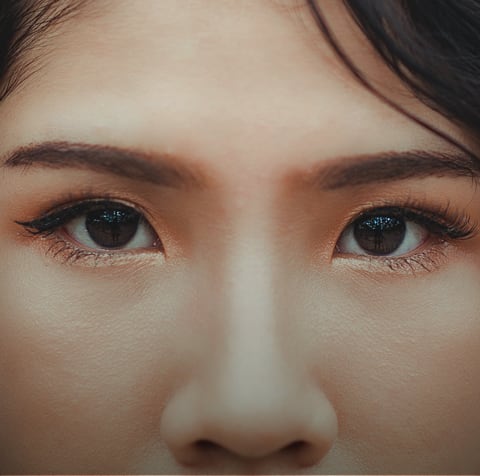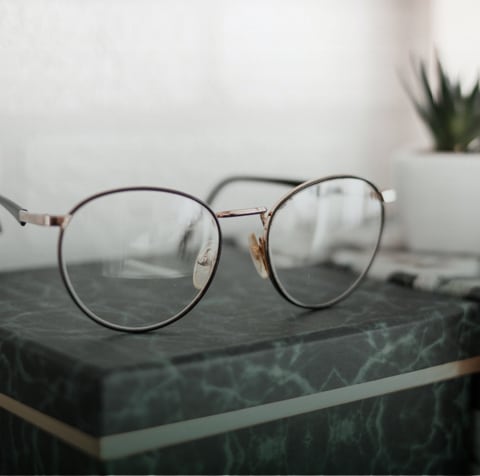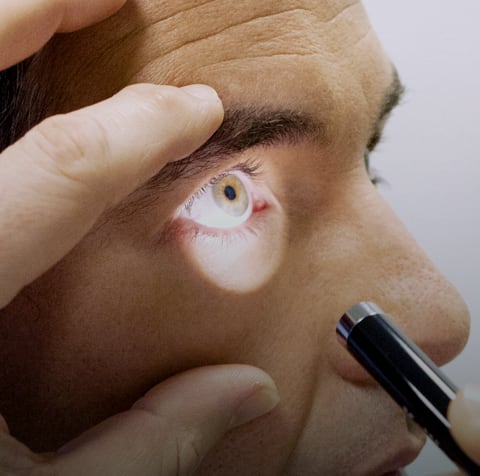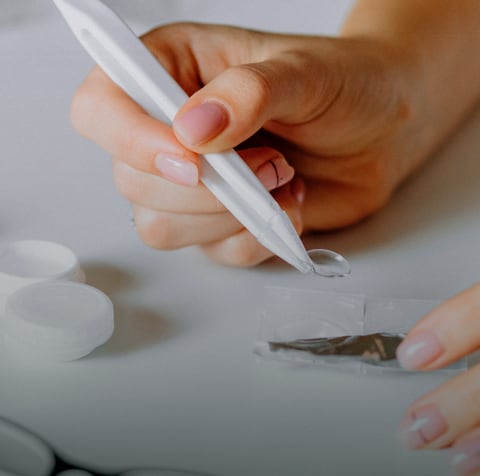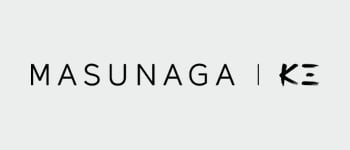Daily disposables? Rigid gas permeable lenses? Contact lenses come in various modalities, and the choice of the best one for you depends on your individual needs, preferences, and any specific vision or eye health issues you may have. Here are the main types of contact lenses:
- Daily Disposable Lenses: These are single-use lenses designed to be worn for one day and then discarded. They’re convenient and require no cleaning or storage. Daily disposables are an excellent choice for those who want hassle-free, fresh lenses every day. These lenses stay preserved in their case for years: so if you dont wear them, you dont waste them. Daily disposable contacts are the most commonly prescribed lenses at Park Slope Eye + Optical Boutique. Ask about our best pricing on Bausch and Lomb Infuse with a $300 rebate.

- Weekly or Monthly Disposable Lenses: These lenses are replaced either weekly or monthly, depending on the specific brand and type. They require regular cleaning and storage in a contact lens case. They can be cost-effective and convenient for some users.
- Extended Wear Lenses: These lenses can be worn continuously for an extended period without removal. The risk of infection is elevated in these lenses and are rarely recommended except for specific health or job reasons. They require more care than daily disposables.
- Rigid Gas Permeable (RGP) Lenses: These are hard lenses made of rigid, breathable materials. They provide excellent vision and are often used for special cases like irregular corneas or certain eye conditions. They can be more durable but may require adaptation.
- Hybrid Lenses: These combine the features of RGP and soft lenses. They have a rigid center for clear vision and a soft outer ring for comfort. Hybrid lenses are suitable for people with astigmatism or irregular corneas.
- Scleral Lenses: These large, gas-permeable lenses vault over the entire cornea and rest on the white part of the eye (sclera). Scleral lenses are used for severe astigmatism, keratoconus, or other irregular corneal conditions.
“I was told I have astigmatism. Can I still get contacts?”
- Toric Lenses: These are designed specifically for people with astigmatism, a condition where the cornea is not perfectly spherical. Toric lenses have different powers in different meridians to correct this irregularity. At Park Slope Eye + Optical Boutique, we have daily disposable and monthly disposable lenses available for astigmatism.
“ I need reading glasses. Does that mean I cannot wear contacts?”
- Multifocal Lenses: These are for individuals with presbyopia, a condition that makes it difficult to focus on objects up close and typically requires reading glasses for near work. Multifocal contact lenses have different prescriptions in different zones, allowing for clear, comfortable vision at varying distances.
The best type of contact lens for you depends on factors like your prescription, lifestyle, comfort, and any specific eye conditions you may have. It’s essential to consult with an eye care professional who can perform a comprehensive eye exam and recommend the most suitable type of contact lens for your needs.
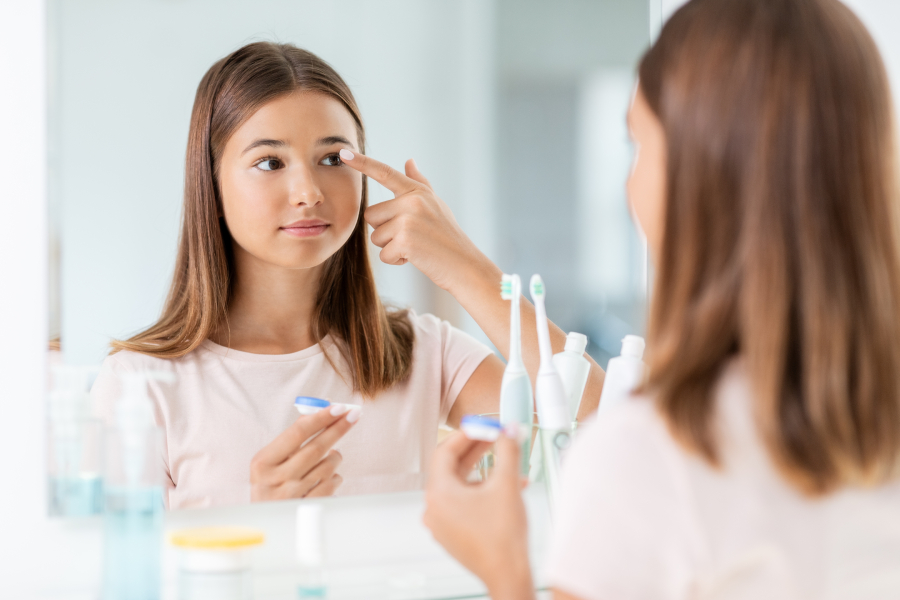
What is the best age to start wearing contacts?
The age at which a person can start wearing contact lenses can vary based on individual factors and the recommendations of your eye doctor. Here are some general guidelines:
- Children and Teens: Many eye care professionals are comfortable fitting children and teenagers with contact lenses, provided they are responsible enough to handle the care and maintenance of the lenses. This often happens around the age of 12 or older. It’s crucial that the individual can follow hygiene and care instructions.
- Young Adults and Adults: Contact lenses are commonly prescribed for young adults and adults. There is no specific age limit, as it depends on individual needs and preferences. Some people begin wearing contacts in their late teens, while others start in their 20s or later.
- Seniors: There is no upper age limit for wearing contact lenses, and many older adults continue to wear them successfully. However, vision changes associated with aging, such as presbyopia, may influence the type of contact lenses prescribed. Our multifocal daily disposable contacts work fantastic for this group of visual needs!
Contact lenses require proper care and hygiene, so the wearer must be capable of following these instructions. Additionally, regular eye exams are necessary to monitor eye health and the suitability of contact lenses.
At Park Slope Eye + Optical Boutique, we will consider your vision requirements, eye health, and lifestyle to make an informed recommendation. Keep in mind that what works best for one person may not be the ideal choice for another, so personalized guidance is essential. Schedule your appointment with Dr. Miriam Korik today!

